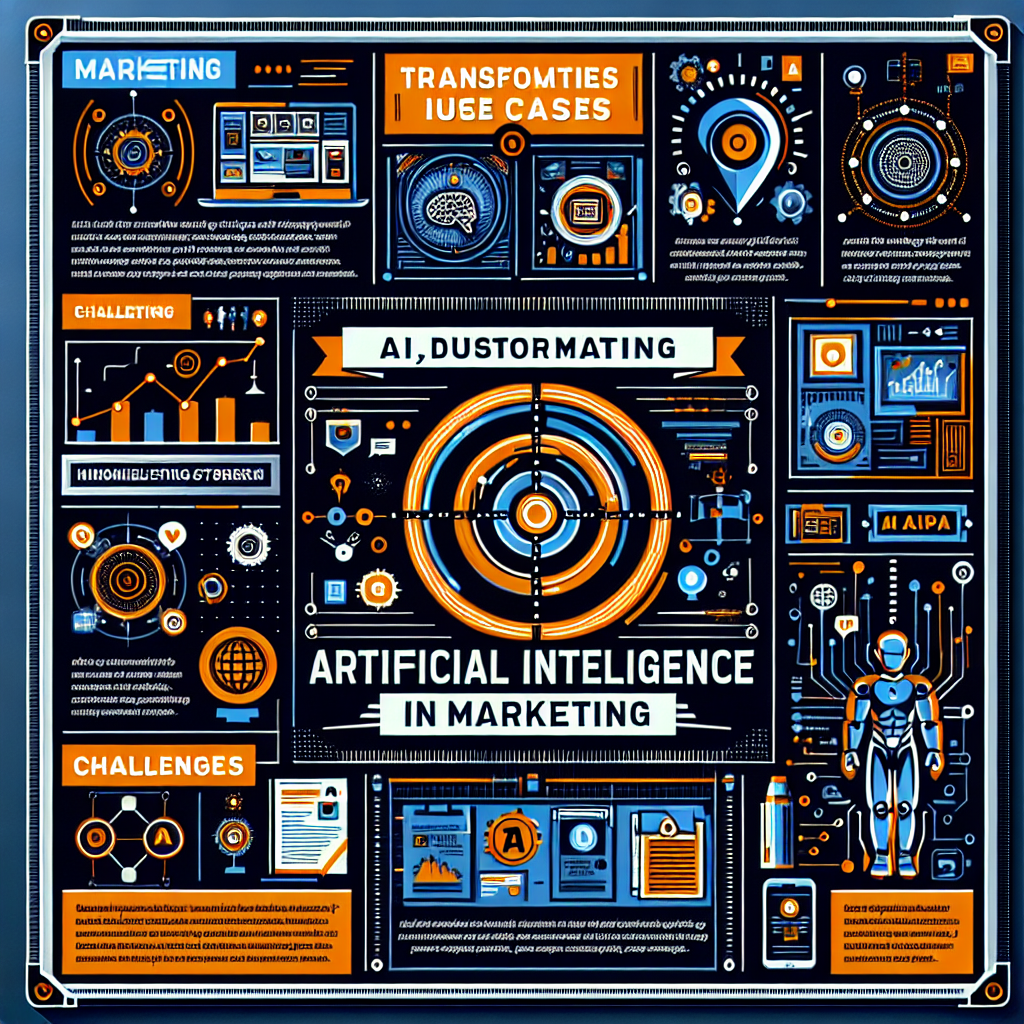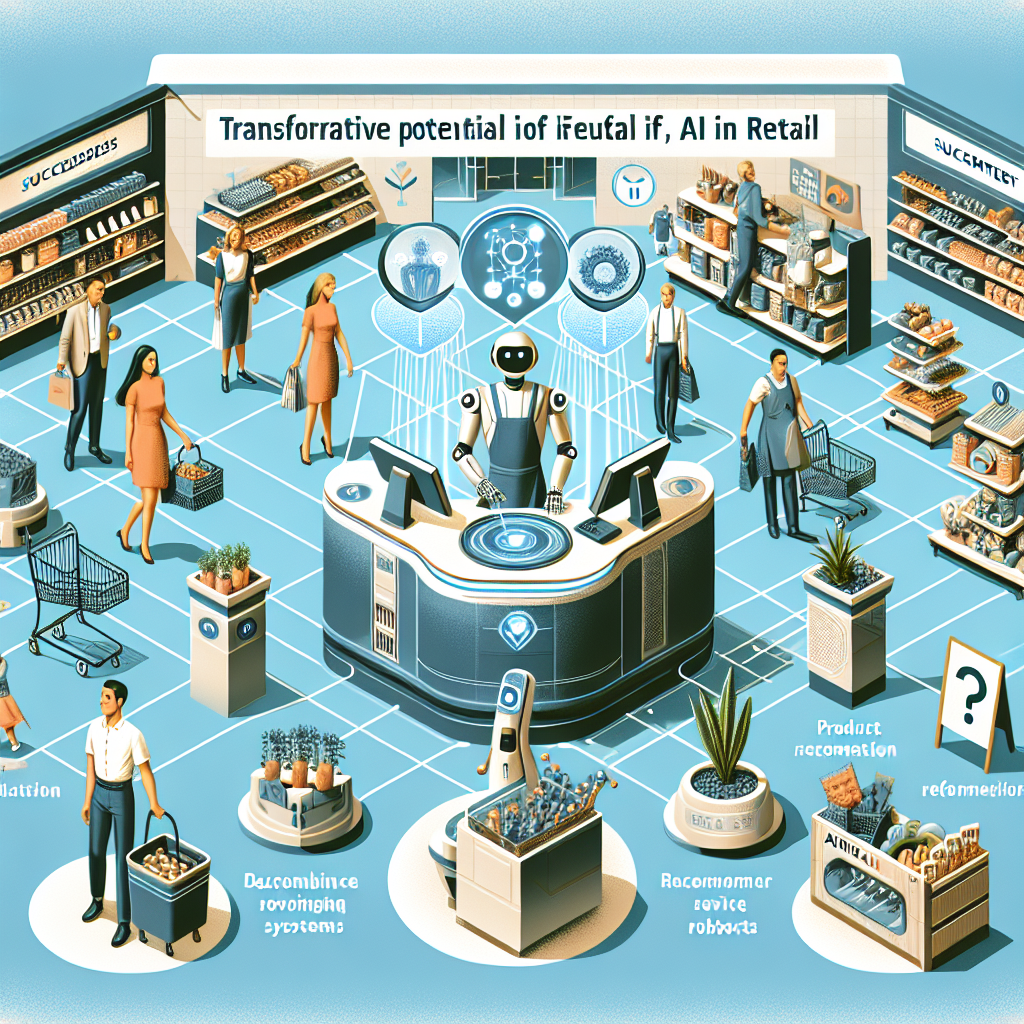AI in Marketing: Transformative Use Cases, Success Stories, and Challenges

```html
In today’s fast-paced marketing landscape, Artificial Intelligence (AI) is a game-changer that’s redefining how businesses connect with their audiences. From personalizing customer experiences to optimizing ad spend, AI is helping marketers navigate the complexities of digital marketing with greater precision and efficiency. In this blog post, we’ll delve into various AI use cases in marketing, highlight successful implementations, and explore the challenges and lessons learned along the way.
Personalized Customer Experiences
AI is revolutionizing customer experiences by enabling highly personalized marketing strategies. Tools like Dynamic Yield and Segment use machine learning algorithms to analyze customer data and deliver tailored content, product recommendations, and offers. This personalized approach not only enhances customer satisfaction but also boosts conversion rates.
Yet, personalization can come with challenges. An e-commerce giant faced backlash when their AI recommendations were so precise that customers felt their privacy was being invaded. This underscored the need for balancing personalization with respect for customer privacy and transparent data usage policies.
Predictive Analytics and Customer Insights
Predictive analytics, powered by AI, is helping marketers anticipate customer behavior and make data-driven decisions. Platforms like Salesforce Einstein and HubSpot use AI to analyze past interactions and predict future actions, enabling marketers to target the right audience with the right message at the right time.
However, predictive analytics is not without its pitfalls. A retail company struggled when their AI model’s predictions failed to account for sudden shifts in consumer trends, leading to ineffective campaigns. This highlighted the importance of continuously updating AI models and incorporating real-time data to enhance accuracy.
Chatbots and Customer Support
AI-driven chatbots are transforming customer support by offering instant, 24/7 assistance. Tools like Drift and Intercom use natural language processing to understand customer queries and provide timely, accurate responses. This not only improves customer satisfaction but also reduces the workload on human support teams.
Despite their advantages, chatbots have limitations. A tech startup faced negative feedback when their AI chatbot struggled with complex queries, frustrating customers. This demonstrated the importance of combining chatbots with human support to handle more intricate issues effectively.
Content Creation and Curation
AI is making waves in content marketing by automating content creation and curation. Tools like Copy.ai and Curata use natural language generation to draft articles, social media posts, and other content based on specific inputs. AI-driven content curation platforms analyze vast amounts of data to identify and recommend relevant content to audiences.
However, AI-generated content must be carefully monitored. A media company faced a credibility crisis when their AI-generated articles contained factual inaccuracies. This highlighted the need for rigorous human oversight to ensure the quality and accuracy of AI-produced content.
Ad Campaign Optimization
AI is optimizing advertising campaigns by analyzing extensive data sets to determine the most effective strategies. Platforms like Google Ads and Facebook Ads utilize AI algorithms to optimize ad targeting, bidding, and creative elements, ensuring maximum return on investment (ROI).
Challenges can arise when over-relying on AI for ad optimization. A fashion brand experienced a decline in engagement when their AI-driven ad campaign failed to resonate with their audience. This emphasized the necessity of blending AI insights with creative human input to craft compelling ad campaigns.
The Future of AI in Marketing
Looking ahead, the role of AI in marketing is set to expand, with advancements expected in areas such as emotional AI for understanding customer sentiment, blockchain integration for transparent ad spends, and enhanced voice search capabilities. AI’s ability to analyze data, provide insights, and automate processes will continue to drive significant innovations in marketing.
To fully leverage AI’s potential in marketing, it is crucial to address ethical considerations, ensure data privacy, and strike a balance between automation and human creativity. Collaboration between marketers, data scientists, and technologists will be pivotal in harnessing AI for responsible and effective marketing strategies.
In conclusion, AI is transforming marketing through personalized customer experiences, predictive analytics, chatbots, content creation, and ad campaign optimization. Success stories from companies like Dynamic Yield and Salesforce Einstein highlight AI’s transformative impact, while challenges underscore the need for continuous refinement and ethical practices. As AI technology advances, its role in marketing will expand, offering new opportunities for innovation, efficiency, and enhanced customer engagement.
```



